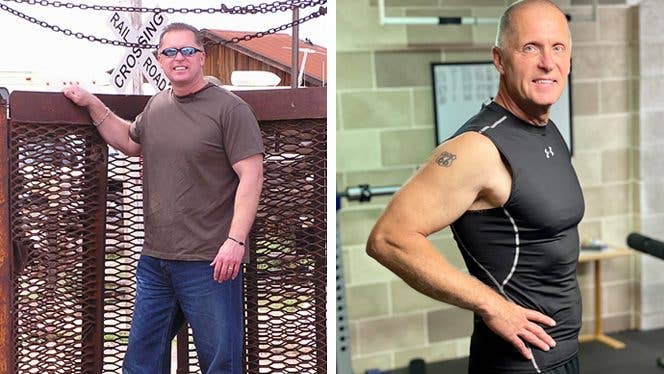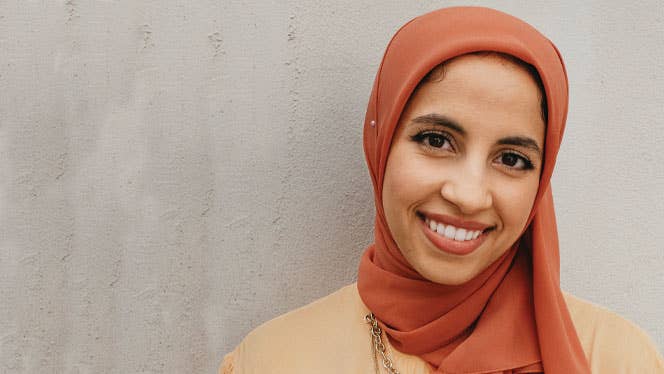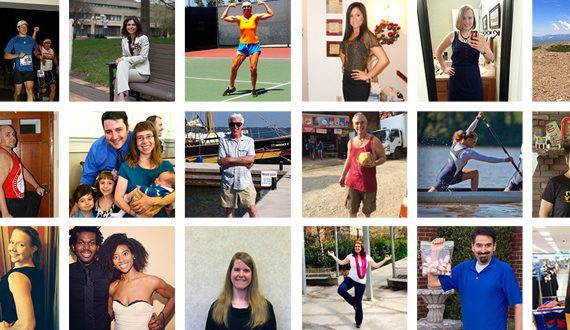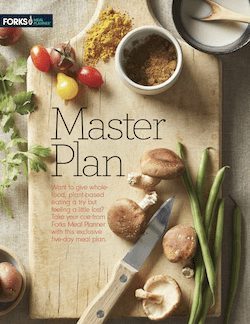
I Thought Weightlifting Could Offset an Unhealthy Diet. I Was Wrong
By Poul David Rasmussen,
I started lifting weights as a freshman in high school in 1974. I was a decent high school and college athlete, and I found that I could enhance my performance on the football field and basketball court through strength training. Weightlifting lit me up, and I learned everything I could about it. Inspired by the muscle magazines of the 1970s, I was completely focused on getting bigger and stronger. “Lift big or go home!” was my motto.
I did not care about doing any cardio work: All I liked doing was lifting weights. I figured that as long as I was strong, I was healthy. Right before my 40th birthday, I did a bench press test of 225 pounds 20 consecutive times. I thought I was the picture of health!
I never paid much mind to my diet, and I regularly ate lots of meat, cheesy pizza, eggs, french fries, salty snack foods, chocolate bars—you name it. I believed that weightlifting could erase the unhealthy effects of meat, dairy, and added sugar. At 6 feet tall, weighing 235 pounds, I considered myself “bulky,” but never fat. In my 40s, I began experiencing severe gut pains after eating. I took lots of Mylanta and an array of prescription antacid pills, but I didn’t think much of it.
Heeding the Wake-Up Call
Near my 50th birthday, I had a physical, and my doctor told me that my total cholesterol was 180 (borderline high) and my blood sugar was 160 mg/dL, meaning I had prediabetes. I was shocked: How could a person who could bench press as much as I did be unhealthy? The real turning point for me came when my daughter moved home in 2014 after graduating from college. She had put on some unwanted weight, and after some painful discussions, we decided to lose weight together.
We had no idea what we were doing, and at first we simply tried to “eat less.” No one reading this will be surprised that we were not successful at all with that approach. Then we came across the Forks Over Knives documentary, which highlighted the scientifically proven benefits of a whole-food, plant-based lifestyle. I realized that my Double Whoppers with cheese, large fries, large Cokes, and Snickers bars were far more influential on my health than how frequently and intensely I lifted weights. I had been doing it all wrong.
I dove into learning about a plant-based lifestyle with the same zeal that I put into weightlifting. I educated myself with books such as How Not to Diet, by Michael Greger, MD, and Fiber Fueled, by Will Bulsiewicz, MD. I watched other documentaries, including Fed Up and The Game Changers and I subscribed to Forks Over Knives’ email newsletters.
As we added more plants to our diet, we saw results. I lost 20 pounds within a year and my daughter lost 25. But it was not like just flipping a switch. Over the course of the next seven years, I continued to eat cheese, eggs, and fish fairly often. I watched my weight creep back up into the 220s. I had to keep taking my indigestion medications, or else experienced severe bloating and discomfort.
Ditching Half Measures
I figured that maybe I’d been goofing up by continuing to eat animal products “in moderation.” So in late 2019, I decided to drop the half measures and go all in on WFPB. Then, my weight finally dropped down to 200 pounds—my weight during freshman year of college. My blood glucose dropped to 83 mg/dL, and my total cholesterol dropped to 122! And the painful bloating I’d struggled with for years finally subsided. I was able to toss all my gut medications.
Now, at age 62, I see fitness very differently than I used to. I’m no longer looking to be big. Lean and healthy is my new identity. I tell people I’m going to live to be 100 years old, pain-free. They always laugh because they think I’m joking, until they see that I’m dead serious.
Two of the biggest surprises in this journey: One, I have not lost any strength in my age-adjusted workout routines (which now include cardio); and two, plant-based meals taste amazing. I actually look forward to eating healthy meals each day.
After I retire next year, I plan to earn a Plant-Based Nutrition Certificate from eCornell University. I’d like to volunteer some of my time to help others convert to a whole-food, plant-based lifestyle. Social pressures, food myths, and highly processed junk foods abound, and so many doctors have no training in nutrition. All of these factors combined make it difficult for people to eat well. I’m convinced that folks need advice and encouragement from people who have been there, done that, and found a better path. And if they want to learn about proper bench-press techniques, I’ll cover that, too—after we talk about how they’re doing in their new plant-based lifestyle!
Ready to get started? Check out Forks Meal Planner, FOK’s easy weekly meal-planning tool to keep you on a healthy plant-based path. To learn more about a whole-food, plant-based diet, visit our Plant-Based Primer.

Has a whole-food, plant-based diet impacted your life?
We would love to hear about it!
SHARE YOUR STORY
Free Download
Free 5-day meal plan!
Get a taste for healthy, fuss-free meal planning with this free five-day meal plan from Forks Meal Planner!
By providing your email address, you consent to receive newsletter emails from Forks Over Knives. We value your privacy and will keep your email address safe. You may unsubscribe from our emails at any time.

Join our mailing list
Get free recipes and the latest info on living a happy, healthy plant-based lifestyle.
By providing your email address, you consent to receive newsletter emails from Forks Over Knives. We value your privacy and will keep your email address safe. You may unsubscribe from our emails at any time.